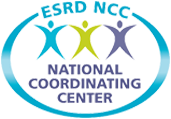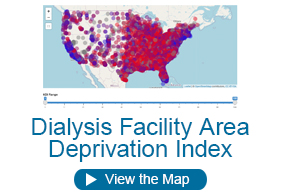Health Equity Key Terms
Health Equity: CMS defines health equity as the attainment of the highest level of health for all people, where everyone has a fair and just opportunity to attain their optimal health regardless of race, ethnicity, disability, sexual orientation, gender identity, socioeconomic status, geography, preferred language, or other factors that affect access to care and health outcomes. To learn more on CMS’s Health Equity Pillar visit www.cms.gov/pillar/health-equity
Social Determinants of Health: Defined by the World Health Organization (WHO) as the circumstances in which people are born, grow up, live, work, and age, and the systems put in place to deal with illness. These circumstances are in turn shaped by a wider set of forces: economics, social policies, and politics.
Health-related Social Needs: In the Accountable Health Communities (AHC) Model, CMS uses the term to describe unmet health-related social needs such as food insecurity, inadequate or unstable housing, that may increase the risk of developing chronic conditions, reduce an individual’s ability to manage these conditions, increase healthcare costs, and lead to avoidable healthcare utilization.
ESRD NCC Health Equity Advisory Board
The ESRD NCC is honored to present the members of the Health Equity Advisory Board. The purpose of the Advisory Board is to gain insights and guidance and to explore new opportunities to improve access to care for all ESRD patients. The role of advisory board members is to provide knowledge, lived experience, critical thinking, and analysis of strategies and tactics that improve health literacy throughout the kidney community.
Deidra C. Crews, MD, ScM, FASN, MACP
 Dr. Crews is a Professor of Medicine in the Division of Nephrology at the Johns Hopkins University School of Medicine. She holds appointments with the School of Nursing, the Welch Center for Prevention, Epidemiology, and Clinical Research, the Center on Aging and Health, and the Center for Health Equity, where she is Deputy Director. Her research focuses on addressing disparities in the care and outcomes of kidney disease and hypertension through epidemiologic studies and clinical trials. Dr. Crews received her undergraduate degree from the University of Virginia and her medical degree from Saint Louis University. A graduate of the Osler Medical Training Program, she completed a nephrology fellowship and a master’s in clinical epidemiology degree at Johns Hopkins.
Dr. Crews is a Professor of Medicine in the Division of Nephrology at the Johns Hopkins University School of Medicine. She holds appointments with the School of Nursing, the Welch Center for Prevention, Epidemiology, and Clinical Research, the Center on Aging and Health, and the Center for Health Equity, where she is Deputy Director. Her research focuses on addressing disparities in the care and outcomes of kidney disease and hypertension through epidemiologic studies and clinical trials. Dr. Crews received her undergraduate degree from the University of Virginia and her medical degree from Saint Louis University. A graduate of the Osler Medical Training Program, she completed a nephrology fellowship and a master’s in clinical epidemiology degree at Johns Hopkins.
Nikeyia Davis, MBA-HCM, MSN, APRN, AGPCNP-C, CNN, FNKF
 Nikeyia Davis, affectionately known as The Kidney Nurse, has been working in the nephrology field for the past 24 years in various roles. She is currently a nephrology nurse practitioner working with patients with end-stage kidney disease at a nephrology practice in the Metro Detroit area. Nikeyia has experience with in-center hemodialysis, peritoneal dialysis, and home hemodialysis modalities. She is the immediate past president of the American Nephrology Nurses Association (ANNA) Michigan Chapter and is currently the Committee Chair for the Diversity, Equity, and Inclusion Committee at the national level of the organization. Past roles with ANNA also include Health Policy Representative, where she attended meetings with the United States Congress and staff to voice concerns about kidney care for people with chronic kidney disease, kidney transplant recipients, and organ donors. She is a Fellow of the National Kidney Foundation (NKF) as well as a committee member of the NKF’s Advocacy Committee. Nikeyia is also a member American Kidney Fund’s Health Equity Coalition. Lastly, Chi Eta Phi Sorority, Incorporated, a professional nursing organization, where she is active in the community, educating on the impacts of high blood pressure, prevention, and management. In partnership with Chi Eta Phi, Incorporated and the National Institute of Diabetes and Digestive and Kidney Diseases, she has worked yearly to present Kidney Sundays in March to educate faith-based organizations and their members on kidney disease and prevention. Nikeyia is continually building her legacy of promoting positive health outcomes by starting her own nursing blog, The Kidney Chronicles, and her own business, KED Talks: Kidney Education, LLC, to educate the community on measures to take to prevent kidney disease and its progression.
Nikeyia Davis, affectionately known as The Kidney Nurse, has been working in the nephrology field for the past 24 years in various roles. She is currently a nephrology nurse practitioner working with patients with end-stage kidney disease at a nephrology practice in the Metro Detroit area. Nikeyia has experience with in-center hemodialysis, peritoneal dialysis, and home hemodialysis modalities. She is the immediate past president of the American Nephrology Nurses Association (ANNA) Michigan Chapter and is currently the Committee Chair for the Diversity, Equity, and Inclusion Committee at the national level of the organization. Past roles with ANNA also include Health Policy Representative, where she attended meetings with the United States Congress and staff to voice concerns about kidney care for people with chronic kidney disease, kidney transplant recipients, and organ donors. She is a Fellow of the National Kidney Foundation (NKF) as well as a committee member of the NKF’s Advocacy Committee. Nikeyia is also a member American Kidney Fund’s Health Equity Coalition. Lastly, Chi Eta Phi Sorority, Incorporated, a professional nursing organization, where she is active in the community, educating on the impacts of high blood pressure, prevention, and management. In partnership with Chi Eta Phi, Incorporated and the National Institute of Diabetes and Digestive and Kidney Diseases, she has worked yearly to present Kidney Sundays in March to educate faith-based organizations and their members on kidney disease and prevention. Nikeyia is continually building her legacy of promoting positive health outcomes by starting her own nursing blog, The Kidney Chronicles, and her own business, KED Talks: Kidney Education, LLC, to educate the community on measures to take to prevent kidney disease and its progression.
Earl Fowlkes, Jr.

Earl serves as the President/CEO of the Center for Black Equity, Inc. (formerly the International Federation of Black Pride -IFBP). He founded the IFBP in 1999 ago as a coalition of organizers in the United States, Canada, United Kingdom, and South Africa formed to promote a multinational network of Black LGBTQ Pride and community-based organizations. Earl has nearly thirty years of senior management experience including stints as the Executive Director of the DC Comprehensive AIDS Resources and Education Consortium (DC CARE Consortium) and Damien Ministries, organizations that provided services to Person Living With HIV/AIDS in Washington, DC.
Earl has served as a member of the National African American Tobacco Education Network; as Lead Manager for the former CDC HIV Prevention Project, as the Principal Investigator for the University of Pittsburgh School of Public Health POWER research project; was a member of the 100 Black Men of American National Health and Wellness Committee; and chaired Ryan White HIV Community Planning Councils in Jersey City and Washington, DC. He currently serves on seven non-profit Boards of Directors and Advisory Boards.
Earl is the former Chair of the DC Human Rights Commission and a national partner of the LGBTQ Chamber of Commerce, The NAACP, United Church of Christ, AARP International, and the U.S. Travel Association.
Patrick O. Gee, Ph.D., JLC
 Dr. Gee is a retired Major/Chief of Security from the Virginia Department of Corrections; and currently serves as the Founder & CEHD of iAdvocate, Inc., a non-profit Faith-based Health & Wellness organization. He is also an Ordained Minister at Mountain Movers Ministry in Richmond, VA. In April 2013, Dr. Gee was diagnosed with Stage 3b End-Stage Kidney Disease (ESKD). He is a former Peritoneal/Hemodialysis patient suffering from Diabetic Kidney Disease. On April 21, 2017, He received a kidney transplant, and after several complications, his new kidney began functioning on the 47th day post-transplant.
Dr. Gee is a retired Major/Chief of Security from the Virginia Department of Corrections; and currently serves as the Founder & CEHD of iAdvocate, Inc., a non-profit Faith-based Health & Wellness organization. He is also an Ordained Minister at Mountain Movers Ministry in Richmond, VA. In April 2013, Dr. Gee was diagnosed with Stage 3b End-Stage Kidney Disease (ESKD). He is a former Peritoneal/Hemodialysis patient suffering from Diabetic Kidney Disease. On April 21, 2017, He received a kidney transplant, and after several complications, his new kidney began functioning on the 47th day post-transplant.
As a Patient Representative for the Diabetes Kidney Disease-Collaborative Task Force, Vice-Chair of Kidney Health Initiative’s (KHI) Patient Family Partnership Council (PFPC), and an advocate for those living with chronic kidney disease and the morbid conditions that contribute to this disease, such as diabetes, cardiovascular disease, hypertension, and obesity, Dr. Gee uses his personal experiences to teach, coach, mentor, and educate others on how best to manage their outcomes. He also ensures that underserved, undervalued, and disenfranchised communities of color have a voice in their quality of life and equitable healthcare access. Dr. Gee graduated from the American University School of Public Affairs in 2012 with a Doctor of Philosophy in Justice, Law, & Criminology.
Dr. Gee’s mantra is, "I am the Voice for the Voiceless and the Face for the Faceless in the fight against kidney disease and health equity.”
Elisa J. Gordon, PhD, MPH
 Dr. Gordon is a Professor in the Department of Surgery and Center for Biomedical Ethics and Society at Vanderbilt University Medical Center, Nashville, TN. She is a medical anthropologist and trained in community health and as a clinical ethicist. Dr. Gordon has been conducting research on transplant ethics, health disparities, and treatment decision-making for over 20 years and has published over 160 peer-reviewed articles. Her research is funded primarily by the NIH, DOD, and HRSA, and has entailed multi-site studies and clinical trials involving qualitative and mixed-methods research, and implementation science. She has the expertise in developing and evaluating culturally targeted complex organizational and educational interventions to reduce health disparities. Dr. Gordon serves on national committees including the Advisory Committee on Blood and Tissue Safety and Availability (ACBTSA), as Chair of the American Society of Transplantation’s Psychosocial and Ethics Community of Practice, and on the Editorial Board of the American Journal of Transplantation. She recently served on the National Academies of Sciences, Engineering, and Medicine Committee on A Fairer and More Equitable Cost-Effective and Transparent System of Donor Organ Procurement, Allocation, and Distribution.
Dr. Gordon is a Professor in the Department of Surgery and Center for Biomedical Ethics and Society at Vanderbilt University Medical Center, Nashville, TN. She is a medical anthropologist and trained in community health and as a clinical ethicist. Dr. Gordon has been conducting research on transplant ethics, health disparities, and treatment decision-making for over 20 years and has published over 160 peer-reviewed articles. Her research is funded primarily by the NIH, DOD, and HRSA, and has entailed multi-site studies and clinical trials involving qualitative and mixed-methods research, and implementation science. She has the expertise in developing and evaluating culturally targeted complex organizational and educational interventions to reduce health disparities. Dr. Gordon serves on national committees including the Advisory Committee on Blood and Tissue Safety and Availability (ACBTSA), as Chair of the American Society of Transplantation’s Psychosocial and Ethics Community of Practice, and on the Editorial Board of the American Journal of Transplantation. She recently served on the National Academies of Sciences, Engineering, and Medicine Committee on A Fairer and More Equitable Cost-Effective and Transparent System of Donor Organ Procurement, Allocation, and Distribution.
Praise Matemavi, MD
 Dr. Matemavi is currently a transplant and vascular access surgeon at the University of Mississippi Medical Center in Jackson, MS. She received her medical degree from Michigan State University College of Osteopathic Medicine in 2010 and then went on to complete an osteopathic surgical internship at Sinai Hospital -Detroit Medical Center in 2011. She then went to New York Presbyterian Queens Hospital - Weill Cornell where she completed her general surgery training in 2017. In 2019 she completed an abdominal transplant and hepatobiliary surgery fellowship at the University of Nebraska Medical Center. Praise is passionate about individualized patient care and strives to meet each patient with compassion, respect, and dignity by meeting patients where they are and working together as a team to achieve the best outcomes.
Dr. Matemavi is currently a transplant and vascular access surgeon at the University of Mississippi Medical Center in Jackson, MS. She received her medical degree from Michigan State University College of Osteopathic Medicine in 2010 and then went on to complete an osteopathic surgical internship at Sinai Hospital -Detroit Medical Center in 2011. She then went to New York Presbyterian Queens Hospital - Weill Cornell where she completed her general surgery training in 2017. In 2019 she completed an abdominal transplant and hepatobiliary surgery fellowship at the University of Nebraska Medical Center. Praise is passionate about individualized patient care and strives to meet each patient with compassion, respect, and dignity by meeting patients where they are and working together as a team to achieve the best outcomes.
Dinushika Mohottige, MD, MPH
 Dinushika Mohottige is a Nephrologist and Assistant Professor in the Division of Nephrology at
Dinushika Mohottige is a Nephrologist and Assistant Professor in the Division of Nephrology at
The Institute of Health Equity Research at the Icahn School of Medicine at Mount Sinai. She received a B.A. in Public Policy and a Health Policy Certificate from Duke University in 2006, where she was a Robertson Scholar. She then earned an MPH in Health Behavior/Health Education from the UNC Gillings School of Global Public Health and a medical degree from the University of North Carolina at Chapel Hill School of Medicine, followed by Internal Medicine and Nephrology training at Duke University Hospitals. Dinushika is committed to patient and community-centered inequity-focused kidney disease research focused on the role of structural racism and socio-structural inequity in CKD and kidney transplant.
Keith Norris, MD

Dr. Keith Norris is an internationally recognized clinician-scientist and health policy leader who has been instrumental in shaping national health policy and clinical practice guidelines for chronic kidney disease (CKD). A board-certified nephrologist, in 1995, he was invited to join the inaugural National Kidney Foundation Kidney Disease Outcomes Quality Initiative, and was a founding member of the subsequent Medicare End-Stage Renal Disease (ESRD) continuous Performance Measures workgroup. He presently serves as a member of the Forum of ESRD Networks, Medical Advisory Board. He also co-directs the Center for Kidney Disease Research, Education and Hope (CURE-CKD), a Providence St. Joseph Health/UCLA partnership using electronic health record data to examine outcomes and quality of care for over 2.7 million patients with CKD and/or at risk for CKD (hypertension, diabetes, pre-diabetes). He has made major contributions to diversity, equity, and inclusion while addressing disparities in contemporary society. For nearly 30 years he has worked to enhance community-academic partnerships and promote community-partnered research. He was the Principal Investigator for the multi-site NIH-NIDDK funded African American Study of Kidney Disease and Hypertension (AASK) and the AASK Cohort Study, the largest comparative drug intervention trial focusing on renal outcomes conducted in African Americans.
Tessa Novick, M.D., MSW
 Dr. Novick is a nephrologist and an assistant professor in the Department of Internal Medicine. Her primary clinical interest is in caring for people with kidney disease who come from marginalized populations.
Dr. Novick is a nephrologist and an assistant professor in the Department of Internal Medicine. Her primary clinical interest is in caring for people with kidney disease who come from marginalized populations.
Originally a Texas native, Novick grew up in north Dallas. She is a proud graduate of New York University, where she attained a bachelor’s and master’s degree in social work. She has previous experience working with people experiencing homelessness and individuals experiencing substance use disorders. She became a physician to combine social work and medicine by addressing the medical needs of people with complex medical issues in their environment.
Novick earned her medical degree with honors at The University of Texas Southwestern in Dallas. She completed a residency in internal medicine and a fellowship in nephrology at Johns Hopkins. During her time in residency and fellowship, she was known for her professionalism, work ethic, clinical skills, and resident teaching.
Novick’s research training includes a Master of Health Science in epidemiology from Johns Hopkins University Bloomberg School of Public Health. Her research interests include disparities in kidney disease, social determinants of health, and improving care delivery for marginalized people with kidney disease. She is particularly interested in immigrant populations with kidney disease, pain medications, and the impact of housing on clinical outcomes in kidney disease.
Mary Owen, MD
 Dr. Owen is a member of the Tlingit nation. She graduated from the University of Minnesota Medical School and North Memorial Family Practice Residency Program before returning home to work for her tribal community in Juneau, Alaska. After eleven years of full-scope family medicine, she returned to the University of Minnesota Medical School, Duluth in 2014, as the Director of the Center of American Indian and Minority Health (CAIMH). Her work includes developing and managing programs to increase the numbers of American Indian and Alaska Native (AIAN) students entering medical careers, outreaching to local and national Native leaders to ensure the University of Minnesota Medical School remains in tune with AIAN health care and education needs, developing an AIAN track for all students interested in providing healthcare to AIAN communities and developing research efforts to address AIAN health disparities. She continues to provide clinical care at the Center of American Indian Resources in Duluth and is the current President of the Association of American Indian Physicians.
Dr. Owen is a member of the Tlingit nation. She graduated from the University of Minnesota Medical School and North Memorial Family Practice Residency Program before returning home to work for her tribal community in Juneau, Alaska. After eleven years of full-scope family medicine, she returned to the University of Minnesota Medical School, Duluth in 2014, as the Director of the Center of American Indian and Minority Health (CAIMH). Her work includes developing and managing programs to increase the numbers of American Indian and Alaska Native (AIAN) students entering medical careers, outreaching to local and national Native leaders to ensure the University of Minnesota Medical School remains in tune with AIAN health care and education needs, developing an AIAN track for all students interested in providing healthcare to AIAN communities and developing research efforts to address AIAN health disparities. She continues to provide clinical care at the Center of American Indian Resources in Duluth and is the current President of the Association of American Indian Physicians.
Rory Caswell Pace, MPH, RD, CSR, FAND
 Rory has dedicated her career to Nephrology Nutrition, a field in which she is a leader, educator, and patient advocate. As Senior Director of Nutrition Services at Satellite Healthcare, Rory has used her clinical and leadership experience to guide clinical practice for over 120 Nephrology Dietitians across the United States, implementing evidence-based nutrition practice in the care of more than 8000 dialysis patients. She is a strong advocate for the role of nutrition in the care of people with kidney disease and has been a key player in the development and implementation of numerous successful clinical initiatives. Rory is experienced with home dialysis therapies and is a supporter of self-care for patients.
Rory has dedicated her career to Nephrology Nutrition, a field in which she is a leader, educator, and patient advocate. As Senior Director of Nutrition Services at Satellite Healthcare, Rory has used her clinical and leadership experience to guide clinical practice for over 120 Nephrology Dietitians across the United States, implementing evidence-based nutrition practice in the care of more than 8000 dialysis patients. She is a strong advocate for the role of nutrition in the care of people with kidney disease and has been a key player in the development and implementation of numerous successful clinical initiatives. Rory is experienced with home dialysis therapies and is a supporter of self-care for patients.
Rory has published and presented on numerous nephrology nutrition topics and is co-author of the 2020 Standards of Practice and Standards of Professional Performance for Nephrology Nutrition. An active volunteer leader, Rory currently serves as Chair of the Renal Dietitians practice group and Chair of the Council on Future Practice, both under the umbrella of the Academy of Nutrition and Dietetics. She also serves on the National Kidney Foundation Spring Clinical Meetings planning committee and has served with the NKF Council on Renal Nutrition.
She earned a bachelor’s degree in Dietetics from the University of California, Davis, and a master’s degree in Public Health with an emphasis in Community Health from UCLA. Rory completed her dietetic internship at the West LA VA Medical Center
Health Equity LAN learning sessions can be found on the Learning and Action Network webpage of this website.
Structural Competency Training for Kidney Healthcare Professionals
Course Overview: This 3-module course will provide attendees with a deep understanding of the current challenges and inequities faced by patients with End-Stage Renal Disease in their pursuit of a better health status. Speakers and attendees will engage in thorough discussions on the multiple biological, social, financial, and cultural aspects that influence patients' health-related social needs and health outcomes. Speakers will share the social structures, structural vulnerability, structural violence, structural and systemic racism, that impact patients’ access to and utilization of care. Attendees will gain an introduction to structural competency, as well as an understanding of the upstream, midstream, and downstream factors and interventions to advance health equity in the kidney community.
Who Should Attend: This course is appropriate for all facility staff, including directors of operations, facility administrators, clinic managers, clinical coordinators, nurses, social workers, dietitians, and transplant professionals.
Healthcare professionals can earn up to 3 Continuing Education credits from attending this course.
Module 1 Identifying Structures and Health among Patients with End-Stage Renal Disease
Tuesday, January 16th, 2024 from 2:00 PM - 3:00 PM ET
Presenter: Keith Norris, MD, PhD
Learning Objectives
- Identify the influences of structures on patient health and clinical encounters
- Define structural vulnerability and structural racism and examine examples of how they influence kidney health
- Discuss structural competency as a framework for recognizing patient health and illness as the downstream effects of social structures
Module 2 Exploring Structural Competency within Kidney Health
Tuesday, January 30th, 2024 from 2:00 PM - 3:00 PM ET
Presenter: Elisa Gordon, PhD, MPH
Objectives
- Discuss the strengths and limitations of cultural competency and cultural humility approaches to overcome disparities in kidney health
- Define structural competency and describe the five goals of a structural competency framework
- Examine the relationship between structural competency and the social determinants of kidney disease
Module 3 Imagining and Implementing Structural Interventions to Advance Health Equity in Kidney Community
Thursday, February 15th, 2024 from 2:00 PM - 3:00 PM ET
Presenter: Dinushika Mohottige, MD, MPH
Objectives
- Discuss historical or contemporary examples of an intervention that addressed structural violence and vulnerability in care
- Define and understand six levels of intervention for addressing harmful social structures in kidney care
- Identify interventions and strategies that address structural causes of kidney disease and kidney care inequities
- CLAS Implementation Action Plan April 2024 (PDF)
- Roadmap 1: Improving Communication and Standardizing Protocols for Patient Safety (PDF)
- Roadmap 2: Fostering Inclusivity and Cultural Competency in Healthcare Facilities Through Person-Centered Care (PDF)
- Roadmap 3: Improving Language Access to Enhance Patient-Provider Communication (PDF)
- Roadmap 4: Navigating Cultural Sensitivity and Accessibility in Facility Environments to Promote Inclusivity (PDF)
- CLAS Standards Implementation Action Plan One-Pager (PDF)
- CLAS webinar: Tuesday, May 7, 2024, 2–3:00 p.m. ET. This is a no-cost course.
- CLAS Standards Implemenation Action Plan for the End Stage Renal Disease Community webinar slide deck (PDF)
- CLAS Standards Implementation Action Plan for the End Stage Renal Disease Community webinar recording (YouTube video)
- American Hospital Association Institute for Diversity and Health Equity Glossary of Terms
- Be Prepared for an Emergency or Natural Disaster
- Blind or Low Vision Tip Sheet
- CDC Health Equity Guiding Principals for Inclusive Communication
- CDC Promoting Health Equity - A Resource to Help Communities Address Social Determinants of Health
- Enhancing Dialysis Patient Transportation
- ESRD Primary Care Fact Sheet
- Health Literacy Dictionary
- Health Literacy Fact Sheet
- How to Be a Transplant Advocate
- Interpretive Services Guide
- Medicare Information in Languages Other Than English
- Office of Minority Health - Think Cultural Health
- Transportation Tip Sheet
Transportation Webinars
- Improving Health Equity—Addressing Transportation Needs
- Advancing Health Equity in the End Stage Renal Disease Community: Transportation Issues & Solutions
- Addressing Rural Transportation Challenges
Transportation Resources
- The Importance of Dialysis Transportation: Your Ride Saves Lives (PDF)
- Enhancing Dialysis Patient Transportation One-Pager (PDF)
- Transportation Tip Sheet (PDF)
National Resources
- Supplemental Nutrition Assistance Program (SNAP)
- Temporary Assistance for Needy Families (TANF)
- FindHelp.Org
- Your Local 211 and Area Agency on Aging
- Neighborhood Navigator
- Community Resource Finder
Food Insecurity Webinar
- Improving Health Equity—Addressing Food Insecurity


